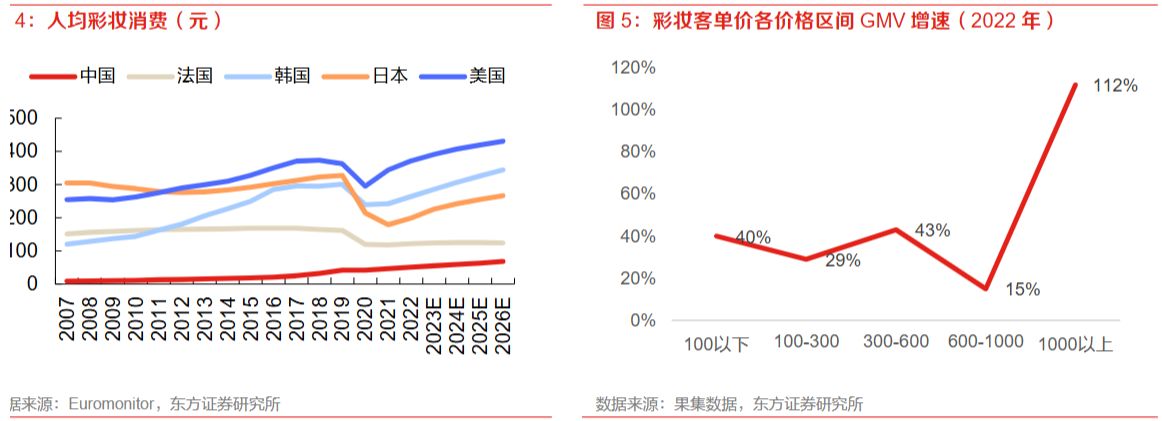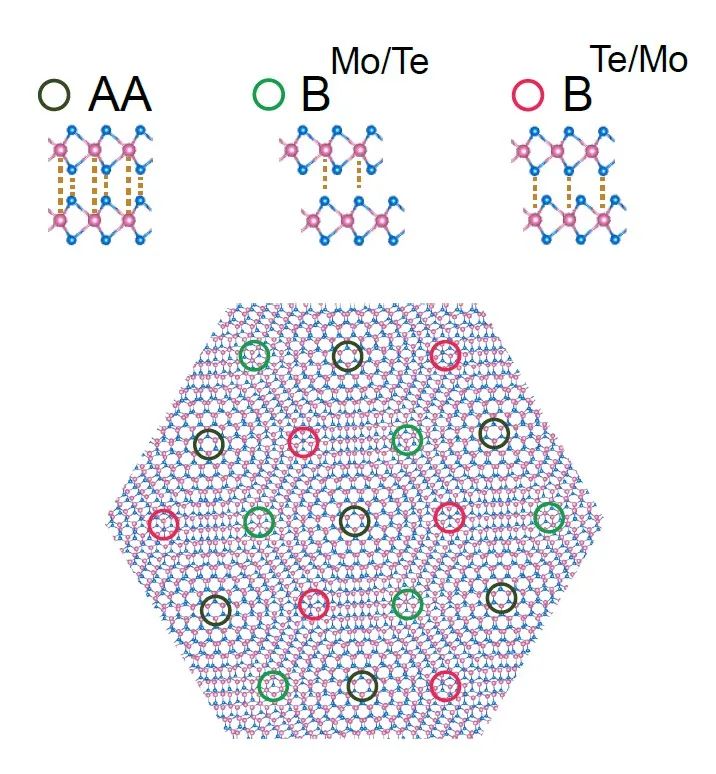The TV series "Xiaguang" continued to be hotly debated during the broadcast of Central Eight.


“
It fully embodies the policy intention of interest rate policy to participate in activating the real estate market and promoting a virtuous circle of the real estate market.
Xu Qian, reporter of China Housing News, reports from Beijing.
After a lapse of eight months, the LPR of more than five years ushered in the first downward adjustment in the Year of the Loong.
On the morning of February 20th, the People’s Bank of China authorized the National Interbank Funding Center to announce that the quoted interest rate (LPR) of the loan market on February 20th, 2024 was: the one-year LPR was 3.45%, which was the same as the previous value; The LPR over 5 years is 3.95%, which is 25 basis points lower than the previous value.
Prior to this, China’s five-year LPR has remained unchanged for seven consecutive months, and the one-year LPR has remained stable for five consecutive months. This asymmetric "interest rate cut" in the industry’s view is more in line with the current policy of stabilizing real estate and stabilizing the economy.
From the perspective of LPR formation mechanism, LPR is made up of 18 quotation lines after adding points according to MLF interest rate, and a highest quotation and a lowest quotation are removed, and the data after weighted average calculation forms quotations. Generally speaking, it is normal to adjust the one-year LPR symmetrically with the one-year LPR over five years, but asymmetric adjustment is not uncommon.
The last symmetrical adjustment was on June 20, 2023, and both the one-year LPR and the five-year LPR were lowered by 10 basis points. In the subsequent adjustment on August 21, 2023, the one-year LPR was lowered by 10 basis points, while the LPR over five years remained unchanged.
LPR with a term of more than 5 years is the main reference benchmark for the pricing of medium and long-term corporate loans and personal housing loans. The reporter noted that since August 20, 2019, there have been eight downward adjustments in LPR interest rates for more than five years in China, but in the past, the downward adjustment was generally 5 to 15 basis points. The one-time reduction of LPR for more than five years is 25 basis points, which is the fiercest rate cut ever recorded in history, releasing a great signal to reduce the interest rate of medium and long-term loans.
Li Yujia, chief researcher of the Housing Policy Research Center of Guangdong Urban and Rural Planning Institute, explained that this year, the pressure of steady employment and steady growth has increased, and the policy focus has returned to a loose framework. However, based on the weak employment and income expectations of residents, the policy side is not only stimulating on the demand side, but more importantly, it is to reduce costs. This LPR reduction is to reduce costs. On the one hand, the fundamentals of the demand side of the property market are still weak, and residents’ expectation of buying houses with leverage is low; On the other hand, a substantial and one-off reduction in the beginning of the year will avoid the market wait-and-see mood of "interest rates will be lowered, and then we will wait for housing and loans", which is conducive to promoting residents to borrow money to buy houses.
Chang Yang, chief analyst of Zhongtai Securities, said that the asymmetric downward adjustment of interest rates in different maturities indicates that the target that the policy wants to play a role is focused, and the one-year LPR remains unchanged, or indicates that the intention to stimulate manufacturing investment and consumption is relatively stable. Due to the relatively strong correlation between the five-year LPR and the real estate market, lowering the five-year LPR interest rate is also a part of the combination of demand-side policies in the real estate market. Combined with the recent intensive introduction of more policy measures around the real estate market, it fully reflects the policy intention of interest rate policy to participate in activating the real estate market and promoting a virtuous circle of the real estate market.
"LPR over five years is the pricing benchmark of individual housing loans. The decline of LPR over five years will further reduce the interest expenses of residents’ mortgages and promote the stable development of the real estate market." Dong Ximiao, chief researcher of Zhaolian, said.
The LPR for more than 5 years has dropped, when can the mortgage interest rate drop? This is a problem that the market is very concerned about.
According to the relevant announcement issued by the central bank, financial institutions should negotiate with customers of floating interest rate loans from March 1, 2020, and choose one of two interest rate pricing methods: fixed interest rate or floating interest rate, that is, LPR+ plus points (the points can be negative). Under normal circumstances, a fixed interest rate is chosen, and the annual repayment rate remains unchanged until all loans are paid off; However, if the floating interest rate is selected, the mortgage interest rate will be priced by LPR as the pricing benchmark+basis point (1 basis point is 0.01%).
It should be noted that after the LPR adjustment, the user’s mortgage interest rate is not adjusted immediately. Generally speaking, the repricing date of mortgage interest rate is January 1st of each year or the loan issuing date (different banks have different policies, so users can choose when signing loan agreements). Therefore, for the existing mortgage, the new interest rate will be obtained according to the latest LPR quoted interest rate and the contractual basis point on the interest rate repricing date, and will be implemented in the next cycle.
According to the data monitored by RealData, in January 2024, the average interest rate of the first mainstream mortgage in Baicheng was 3.84%, and the average interest rate of the second mainstream mortgage was 4.41%. Li Yujia predicted that, considering that the mortgage interest rate dropped slightly last year, the housing loan interest rate will continue to decline this year, and the first and second home loan interest rates will drop by at least 30 basis points.
Yan Yuejin, research director of Yiju Research Institute, believes that the current real estate market is in the stage of stabilization and recovery, but the recovery process needs to be consolidated. This "interest rate cut" is beneficial to the reduction of capital cost and directly leads to the reduction of mortgage interest rate, which has a positive impact on the mortgage market. According to the simple calculation of the loan principal of 1 million yuan and the repayment method of 30 years’ equal principal and interest, the monthly mortgage payment of buyers can be reduced by about 150 yuan after the interest rate cut, which is a relatively heavy burden reduction, which is helpful to further promote the application and consumption of mortgage loans and promote the active follow-up housing market.
Original title: "Heavy! The biggest "interest rate cut" in history! 》

group photo of the main creator

producerAndy Lau

producerLinjiadong
[Click to watch the exclusive video]
 "The Ring" premiered, Andy Lau "recognized his father" on the spot to avoid talking about Zhu Liqian
"The Ring" premiered, Andy Lau "recognized his father" on the spot to avoid talking about Zhu Liqian
Movie Network News(Photo/Qian Jia Yiwen/Zhang Wei) Solid horse steps, strong flying legs, and a rap version of "Huo Yuanjia", on May 31, at the premiere of the movie "Ring", not only did the stars show real kung fu, but Andy Lau and Teddy Robin sang the adaptation of the movie’s theme song "Huo Yuanjia", big show RAP. For the film’s other star Liang Xiaolong, Andy Lau recognized "Dad" on the spot, "I played Yang Guo, and he played Yang Kang a long time ago." But when it comes to his family in life, Andy Lau played Tai Chi. Producer Andy Lau, producer Lin Jiadong, director Guo Zijian, Zheng Sijie, starring Liang Xiaolong, Chen Guantai, Teddy Robin, Huang Yunan, Ouyang Jing, Jia Xiaochen attended, Zhang Guoli, Ning Hao also came to help, the film will be released on June 4.

starringLiang Xiaolong

starringChen Guantai

starringTeddy RobinLive show tai chi
Andy Lau acknowledges Liang Xiaolong as a "father" and avoids talking about Zhu Liqian
Although he is only the producer of the film "The Ring", Andy Lau has gone to great lengths to promote this film. He also has a deep connection with several veteran action stars in the film. Andy Lau self-destructed and Liang Xiaolong still have a "relative" relationship. "I played Yang Guo, and a long time ago, he played my’father ‘Yang Kang." Seeing this, Liang Xiaolong hurriedly took over, "It won’t be long, it will be more than ten years." Liang Xiaolong, who is over 60 years old, is never willing to accept his old age. In his words, he always proves that he is very young and childlike.
Don’t look at Andy Lau and Liang Xiaolong’s relatives on the spot, but when it comes to family members in life, Liu Tianwang is not so generous. When the reporter asked Andy Lau how much time he spends with his family after work, he first smiled intelligently and replied, "I can’t tell the difference." Playing Tai Chi, it seems that Andy Lau has really done a lot of work to protect his family.

Andy Lau and Teddy Robin sing

Liang Xiaolong teaches on siteHuang YounanKung Fu
Andy Lau plays RAP live, starring in the big show of real kung fu
The theme song of "The Ring" is adapted from the theme song of the classic movie "Fearless", adding many popular elements such as rap, starring Teddy Robin is not only an action star but also an excellent musician. He and another star, Ouyang Jing, sang the adapted version of "The Great Wall Will Never Fall" on the spot. When the song reached its climax, Andy Lau also joined in, while doing the classic movements of rappers singing, while showing RAP, which was full of action and immediately brought the atmosphere to a climax.
Afterwards, Liang Xiaolong and Teddy Robin showed some real kung fu on the spot. Although both of them were over 60 years old, they did not lose to the young people in the slightest. Liang Xiaolong also took off his shoes and performed a whirlwind leg and roundabout kick, which made everyone applaud loudly, and Huang Younan on the side also learned. The oldest Teddy Robin slowly played Tai Chi, with sufficient strength and a strong fist.
Chan Kwan-tai and Liang Xiaolong play the apprentice of Teddy Robin in "The Ring". The master finally wakes up after a 30-year coma and is ready to lead his apprentices to challenge the ring, but a series of unpredictable things happen. The three stars in the film are all popular martial arts stars in the 1980s. This time, they are reunited in "The Ring", hoping to use this film to carry forward the "fist to meat" rather than the swaggering Hong Kong kung fu film. When the film is released in mainland China, it will be in full Cantonese dialogue.
Next page More wonderful pictures
1905 movie network news The film released the new year music "Follow your Feelings" MV. This classic old song is sung by,,,, and, and it is a surprise performance in MV. The cheerful song is full of dreams and future expectations, and it also conveys the positive momentum of striding out to bid farewell to the old and welcome the new. The arrangement of folk music adds a lively and joyful atmosphere to the Spring Festival. The film is written and directed by Shen Teng, Adam, Andrew, Zhang Ben Yu and Sean, with Jia Bing as the special star and Friendship as the leading role. It is in the process of pre-sale, and it is released nationwide on New Year’s Day, flying with a smile.

Super comedy team He Xinchun’s "Follow the Feelings" MV is full of joy and jubilation.
The newly released Chinese New Year music "Follow Your Feelings" MV is full of festive and jubilant flavor. Shen Teng, Adam, Andrew, Zhang Ben Yu, Sean, dressed in jubilant red costumes, sang happily, "Follow your feelings, hold the hand of dreams" and "Follow your feelings, let it take me with you, and there will be dreams everywhere", which sang Zhang Chi’s persistence in pursuing dreams with a bulk fleet, and also represented a positive and optimistic attitude of striding forward in accordance with the love in your heart. Whether it is the lyrics with a high degree of matching or the daily life of driving school with funny interpretation, they all form a subtle echo with the role identity of everyone in the film. The slogan "Quality Assurance of Champion Coach" in the background reflects the identity change of Zhang Chi, played by Shen Teng in the second part, from a former champion driver to a driving school coach. Adam sang "Hold on to the hand of dreams", which also reminds people that Li Xiaohai, who he plays, wants a chance to prove his wish on the field.


In addition, in the MV, Andrew’s vitality is full, Zhang Ben Yu’s sense of technology house sprouting, and Sean’s joyful performance also continue their respective role images. Jia Bing, who plays the sponsor of the motorcade, also appeared in the MV with surprise, and Shen Teng distributed advertisements for enrollment of driving schools, in exchange for Jia Bing’s very stalwart line "What class drives the same car as me", which poked the audience with laughter. He Xinchun, a super comedy team, is surrounded by festive atmosphere with joyful songs, lively drums and wonderful dragon dances.


The Spring Festival family reunion conveys multiple emotional forces. The audience shouts and laughs, which is good for burning blood and enjoyable.
The movie "Pegasus 2" tells the story of driving school coach Zhang Chi (Shen Teng) and potential newcomer Li Xiaohai (Adam) who formed a bulk convoy and went out to the last Bayinbuluke Rally with many jokes. As one of the most important festivals in Chinese, the Spring Festival is endowed with many meanings, such as laughing and celebrating, family reunion, saying goodbye to the old and welcoming the new. "Pegasus 2" also fits the atmosphere of the Spring Festival seamlessly from all aspects, with funny jokes, jubilation against the wind, racing scenes that shock audiences of all ages, and emotional strength to bid farewell to the past and welcome a better future, all of which show the film’s family spirit in the Spring Festival. With the holding of the specially invited friends’ party, the first round of word-of-mouth was first released, and a large wave of audience praised it as funny, burning, passionate and enjoyable: "Wonderful to boiling", "The regret five years ago was completed", "The family fun atmosphere was full" and "It lit me up".


The film "Pegasus 2" will be released nationwide on the first day of the New Year’s Day, and it is in the process of pre-sale.
This year’s Mid-Year Promotion "618" has been launched. Compared with previous years, the involution of the platform has become more heated, the "pre-sale" has been cancelled in rules, the promotion methods have been simplified, and the major platforms have returned to users to increase the profits for consumers. This year’s GMV is expected to go up to a higher level, and cosmetics, as an important sales category, are expected to achieve a significant increase in sales.
In 2023, the GMV of the "618" whole network reached 798.7 billion yuan, and the GMV contributed by the four major e-commerce platforms in the beauty field alone exceeded 61 billion yuan. Some domestic beauty brands are riding the dust, and they can still show the competitiveness of domestic beauty under the encirclement of a number of international brands. China’s cosmetics market has great potential, and domestic beauty cosmetics are gradually moving closer to international brands after industry integration, showing a new development trend.
The trend of high-end domestic cosmetics is obvious.
The overall scale of China’s beauty market is increasing. According to the data of Jost Sullivan, from 2017 to 2022, the market scale of China’s beauty industry increased from 367.9 billion yuan to 552.2 billion yuan, corresponding to CAGR of 8.5%. In 2022, affected by the epidemic, the growth rate decreased by -7.1% year-on-year, but it did not change the overall trend. It is estimated that it will continue to grow at a compound growth rate of 8.2% from 2022 to 2027, reaching 858 billion yuan in 2027.

At the same time, according to the research of Insight Report on Digital Trend of High-end Beauty Market in China, although the beauty market in China suffered a slight setback in 2022, the "lipstick effect" of the beauty industry still holds. After careful observation, we can find that the slowdown of industry growth is driven by the reduction of purchase quantity in the objective environment, and the unit price of customers has not been hit hard, and the trend of consumption upgrading will continue.
In 2022, China’s per capita consumption of cosmetics was 79 yuan, and it is expected to rise to 116 yuan in 2027, with a significant increase in per capita consumption. In terms of customer unit price, in 2022, the growth rate of GMV of social media e-commerce products with customer unit price above 300-600 yuan /600-1,000 yuan /1,000 yuan was 43%/15%/112% respectively, and the products with high customer unit price had the fastest growth rate. Referring to the per capita consumption of cosmetics in Western Europe, Japan, South Korea and the United States, there is still much room for improvement in the per capita consumption of cosmetics in China.

Judging from the scale of the high-end beauty market, according to Jost Sullivan’s data, the market scale of China’s high-end beauty industry will increase from 116.9 billion yuan to 182 billion yuan from 2017 to 2022, corresponding to CAGR of 9.3%. It is estimated that it will continue to grow at a compound growth rate of 10.2% from 2022 to 2027, reaching 295.7 billion yuan in 2027. The growth rate of the market scale is higher than that of the mass beauty market, and the trend of high-end beauty is obvious.
Domestic beauty brands have also accelerated their reshuffle due to the intensification of competition. With the gradual decline of capital and flow, the weight of product quality in brand growth will increase, from focusing on marketing to paying more attention to research and development and innovation. This also means that the formula and raw materials of beauty products will be more and more important, and high-end raw material suppliers will usher in opportunities with the transformation of domestic beauty products.
Pearlescent pigment meets the needs of high-end beauty cosmetics
The industry divides cosmetic raw materials into matrix, general additives and cosmetic active ingredients. Among them, the matrix is divided into oil, powder, water agent and surfactant; General additives are divided into colloid, antioxidant, preservative, perfume and pigment; Active ingredients can be divided into sunscreen, moisturizing, whitening, oil control, skin rejuvenation, wrinkle removal and so on.
Pearlescent pigment is a kind of special optical effect pigment. When sunlight hits the surface, it produces multi-level refraction, and the interaction of reflected light produces color, which is similar to the principle of rainbow formation. Pearlescent pigment can provide unique luster for cosmetics, increase color levels and help products enhance color effects and visual effects; Take the powdered eye shadow as an example, the pearlescent pigment component accounts for about 10%. With the high-end trend of domestic beauty brands, the demand for pearlescent pigments will continue to increase in the future.
On the one hand, high-end beauty products often pursue more outstanding visual effects and unique texture. Pearlescent pigment can give the product a delicate, bright and layered luster, which makes the beauty show advanced texture and charm; If added to eye shadow, blush and other products, it presents advanced three-dimensional sense and gloss, making the makeup look more refined and luxurious, which meets the high standard requirements of high-end appearance.
On the other hand, high-end beauty cosmetics have higher requirements for color accuracy, stability and innovation. High-quality pearlescent pigments can provide bright, pure and lasting color expression, and can create novel and unique color effects through different blending and combinations, and create innovative beauty concepts and styles, such as using pearlescent pigments to create futuristic or artistic makeup, which is in line with the pursuit of quality and innovation of high-end cosmetics.

Unique visual effect, improving product quality, rich and varied colors, flexible design, adaptability to various scenes, and healthy and environmentally friendly products are all advantages of pearlescent pigments selected by high-end cosmetics brands. In recent years, the market scale of cosmetic pearlescent pigments has grown steadily, which is one of the most promising segments of pearlescent pigments. According to Jost Sullivan’s prediction, the market scale of cosmetic pearlescent pigments will increase by 21.7% from 2022 to 2025.
Domestic pearlescent pigment manufacturers show their talents.
Cosmetic-grade pearlescent pigments are also high-end products in pearlescent pigments industry, which have a high technical threshold. In the past, the global share was mainly in the hands of international enterprises such as BASF, Merck and CQV. However, with the continuous accumulation of technology by domestic pearlescent pigment enterprises, this situation has been broken, and a few leading enterprises have begun to participate in the supply chain of high-end markets such as cosmetics and automobiles, and gained a place in the global pearlescent pigment industry competition.
Global New Materials International (06616.HK) is the leading pearlescent pigment in China. Its greatest technical advantage is its mastery of the whole set of core synthetic mica production technology, which is also a sign that enterprises in the industry have entered the high-end production capacity. Synthetic mica is the main substrate of pearlescent pigments, and synthetic mica-based pearlescent pigments are mainly used in high-end markets such as automobiles and cosmetics. By the end of 2023, Global New Materials International has provided more than 2,000 kinds of pearlescent pigment products, including more than 900 kinds of synthetic mica-based products, and the revenue proportion of high-end products exceeds 50%.
Thanks to the strong R&D team and continuous R&D investment, the company is at the forefront of the industry in product innovation. The new titanium-free series of pearlescent pigments introduced by Global New Materials International at the press conference in early 2024 is the first of its kind in Global New Materials International, including the series of "Jade and Silver Cosmetics" and the series of "Tiema Jinge", which are especially suitable for cosmetics. The products are mainly based on high-quality natural mica, synthetic mica and glass flake, coated with metal oxide by specific technology, and the color trend is accurately controlled, so as to cast pearlescent pigments with obvious pearlescent effect, rich hue, various particle sizes, and luster ranging from soft to ultra-shiny, and do not contain TiO2 component, which can meet the demand of cosmetic pearlescent pigments without titanium component in European Union and other countries.
The company’s iron-based matte chameleon series effect pigments are also very innovative. Based on synthetic mica, a series of dreamy, colorful products with different role effects are prepared by coating with multi-layer metal oxides and non-metal oxides and precise control. Compared with ordinary pearlescent pigments, matte pearlescent pigments produce softer and smoother effects, presenting a matte appearance, which can be widely used in many fields including makeup and cosmetics. The positioning of "low-key and luxurious" satisfies the pursuit of some high-end consumers for matte high-end colors with more "texture".
Moreover, the synthetic mica powder produced by the company can not only be used to produce synthetic mica-based pearlescent pigments, but also be directly and safely used in cosmetics, which meets the requirements of the foreign product ingredient standard of the Japanese Ministry of Medicine. Synthetic mica functional filler has also become an important source of income for the company, contributing 83.77 million yuan in revenue in 2023, with a year-on-year growth rate of 30%.
According to Jost Sullivan’s data, its market share of pearlescent pigments in 2022 will be the first in China and the fourth in the world by revenue. After the acquisition of CQV in 2023, its global pearlescent pigment market share jumped to the third place, further enhancing its market share. At the same time, the technology empowerment and global channel sharing brought by the acquisition of CQV have greatly enhanced the competitive strength of Global New Materials International in high-end markets such as cosmetics-grade pearlescent pigments and automobile-grade pearlescent pigments.
CQV is a company that mainly produces high-end pearlescent pigments, and it is also an important participant in the international market. More than 80% of its income comes from the sales of automotive and cosmetic products. CQV is the only enterprise in the world that can realize mass production of pearlescent pigment products based on automotive grade alumina. Its cosmetic products are also very competitive in the Asian cosmetics market. The pearlescent pigments based on alumina are bright, shiny, clean and smooth, and are approved to be used in all cosmetics in the world.
With the development of domestic beauty cosmetics, the demand for pearlescent pigments, which can improve the texture and visual effect of products, will inevitably increase. Global New Materials International has the advantages of technology and scale, and is one of the few enterprises with high-end production capacity. The pearlescent pigments developed by it meet the needs of high-end beauty cosmetics and also have advantages in product quality and performance.
At the same time, with the deep integration with CQV and the release of high-end production capacity, it will further enhance its competitive strength, which is expected to help the company seize the transformation opportunity in the beauty field, strengthen its leading position in the cosmetics-grade high-end market, form a virtuous circle, and lay a solid foundation for future sustainable development.
Transfer from: China. com
[Copyright and Disclaimer] All copyrighted works belonging to this website must be authorized to reprint and indicate the source of "China Industrial Economic Information Network". Otherwise, this website will reserve the right to pursue its relevant legal responsibilities. Reprinted articles and corporate publicity information only represent the author’s personal views, not the views and positions of this website. Please contact: 010-65363056 for copyright matters.
Extended reading
On the Fourth Session of the 13th National Committee of the Chinese People’s Political Consultative Conference
Letter of Reply to Proposal No.2010 (Finance and Taxation No.220)
Your proposal on standardizing the bidding behavior of government procurement centers and government-funded construction projects has been received. In consultation with the Ministry of Finance, our reply is as follows.
Your comments and suggestions have strong pertinence and important reference value, and the relevant situation is reported as follows.
A, about the cancellation of the government procurement center and other units of the bidding agency qualification.
In the field of bidding, the first paragraph of Article 12 of the Bidding Law stipulates that the tenderer has the right to choose a bidding agency and entrust it to handle the bidding matters. No unit or individual may designate a tendering agency for the tenderee in any way. Paragraph 2 of Article 14 stipulates that there shall be no subordinate relationship or other interest relationship between the tendering agency and the administrative organ or other state organs. State-owned enterprises such as central enterprises and local state-owned enterprises, as tenderers, have the right to choose their own bidding agencies according to law. Some state-owned enterprises have subordinate bidding agencies, so it is not appropriate to force them to choose the social third-party bidding agency in the territory (project location) of the construction project.
In the field of government procurement, China’s government procurement adopts the mode of combining centralized procurement with decentralized procurement. According to Article 16 of the Government Procurement Law, centralized procurement agencies are procurement agencies. The people’s governments at or above the level of cities and autonomous prefectures with districts shall set up centralized procurement institutions according to the needs of organizing centralized procurement of government procurement projects at the corresponding level. Centralized procurement institutions are non-profit legal persons, and handle procurement matters according to the entrustment of purchasers. Over the years, centralized procurement institutions have played an active role in giving full play to the scale effect and specialization advantages of procurement, and it is not practical to completely cancel the government procurement center. With the promotion of the integration of public resource trading platforms, many local public resource trading centers have assumed the functions of centralized procurement agencies in the process of local government institutional reform, and it is not practical to cancel the procurement agency function at present.
Second, on promoting electronic bidding and procurement
In recent years, our Committee and relevant departments in the State Council have actively promoted the electronization of the whole bidding process. Formulate and promulgate the Measures for Electronic Bidding (Order No.20 of 2013 issued by 8 departments including the National Development and Reform Commission), the Notice on Printing and Distributing the Bidding and Purchasing Action Plan of internet plus (2017-2019) (No.357 of the Development and Reform Law [2017]) and the Notice on Actively Responding to the Epidemic and Innovating the Bidding Work to Ensure the Stable Operation of the Economy (Development and Reform) We will further promote the electronization of the whole bidding process, and realize online operation in such links as issuing bidding announcements, downloading bidding documents, submitting bidding documents, opening bids, evaluating bids, and publicizing winning bids. Innovate electronic administrative supervision, realize dynamic recording, trace tracing and transparent disclosure of information in the whole transaction process, and further improve the pertinence, convenience and standardization of administrative supervision. Since 2018, our Committee and relevant departments have accelerated the revision of the Bidding Law, and the Bidding Law (Revised Draft for Review) (hereinafter referred to as the "Draft") has been reported to the State Council and included in the 2021 Legislative Work Plan of the State Council. The "Draft" further clarifies that except for special circumstances such as national security and state secrets, projects that must be subject to tender according to law should adopt electronic bidding.
The Ministry of Finance actively promotes the work related to electronic government procurement, and relies on information technology and big data technology to track and dynamically supervise the key links of government procurement, effectively regulating procurement behavior. At present, we are studying and formulating policy documents related to the "internet plus government procurement" action, which will further improve the top-level design of government procurement informatization, promote the deep integration of government procurement and the Internet, and improve the efficiency, transparency and regulatory effectiveness of government procurement.
Three, about standardizing the bidding procurement procedures
As for your suggestion that "pre-qualification is strictly prohibited before bidding", the second paragraph of Article 15 of the Regulations for the Implementation of the Bidding Law stipulates that if a tenderer uses the pre-qualification method to examine the qualifications of potential bidders, it shall issue a pre-qualification announcement and prepare pre-qualification documents. Whether or not to examine the qualifications of potential bidders is the autonomy of the tenderer, and the tenderer can conduct pre-qualification on the premise of complying with laws and regulations. The problem that the pre-qualification threshold is too high and the potential bidders are excluded in practice is rooted in the fact that the tenderee has not set the pre-qualification conditions and procedures reasonably according to the requirements of laws and regulations.
Regarding your suggestion that it is forbidden to have tendentious clauses in the bidding documents and set unreasonable qualification conditions, the Regulations on Optimizing the Business Environment drafted by our Committee and relevant departments clearly stipulates that bidding and government procurement should be open, transparent, fair and just, and market players of all ownership systems and different regions should be treated equally according to law. In the field of bidding, Article 32 of the Regulations for the Implementation of the Bidding Law stipulates that a tenderer shall not restrict or exclude potential bidders or bidders with unreasonable conditions, including not providing different project information to potential bidders or bidders for the same bidding project; Shall not set qualifications, technical and commercial conditions that are incompatible with the specific characteristics and actual needs of the project subject to tender or irrelevant to the performance of the contract; It is not allowed to take the performance and awards of a specific administrative region or a specific industry as the conditions for extra points or winning the bid in projects that must be subject to tender according to law; May not adopt different qualification examination or bid evaluation criteria for potential bidders or bidders; No specific patent, trademark, brand, country of origin or supplier shall be restricted or designated; It is not allowed to illegally limit the ownership or organizational form of potential bidders or bidders in projects that must be subject to tender according to law. In order to further promote the special rectification of the business environment in the field of bidding and tendering, in 2019, our Committee issued the Work Plan for the Special Rectification of the Business Environment in the Field of Bidding and Tendering of Engineering Projects (Development and Reform Office Regulations [2019] No.862), and together with relevant departments, promoted the comprehensive clean-up of bidding and tendering system documents that violated fair competition.Clean up, investigate and correct all kinds of unreasonable restrictions and barriers imposed on enterprises of different ownership in bidding laws and regulations, policy documents, bidding announcements, invitations to bid, pre-qualification announcements, pre-qualification documents, bidding documents and bidding practices, and seriously investigate and deal with a large number of illegal acts of excluding or restricting potential bidders. On this basis, in February 2021, our Committee issued and implemented the Notice on Establishing a Long-term Mechanism for Optimizing the Business Environment in the Field of Bidding (Development and Reform Regulation [2021] No.240, hereinafter referred to as "Document No.240"), and made arrangements for standardizing the formulation of local bidding system rules, comprehensively implementing the "double random and one open" supervision mode, and establishing a normalized collection and verification mechanism for clues that damage the business environment. In the field of government procurement, the current legal system of government procurement clearly stipulates that suppliers should not be treated differently or discriminated against under unreasonable conditions, including setting qualifications, technology and business conditions that are incompatible with the specific characteristics and actual needs of procurement projects or have nothing to do with contract performance; Not to the performance of a specific administrative region or a specific industry, awards as a bonus condition or bid, clinch a deal conditions; No specific patents, trademarks, brands or suppliers shall be restricted or designated; It is not allowed to illegally limit the ownership form, organization form or location of suppliers. If the supplier thinks that he has been treated unfairly in government procurement activities, he can raise questions to the relevant procurement units or complain to the relevant departments according to law.
As for your suggestion that experts should determine the winning bidder on the spot when the bid evaluation is completed, the bid evaluation results should not be fed back to the tenderer. According to the current legal system of bidding and government procurement, it is determined that the candidate winning the bid is the legal duty of the tenderer (purchaser). After the bid evaluation is completed, the bid evaluation committee shall submit a written bid evaluation report to the tenderer and recommend qualified candidates winning the bid. The tenderer shall determine the winning bidder according to the bid evaluation report and the recommended winning candidate. Article 55 of the Regulations on the Implementation of the Bidding Law stipulates that the tenderee shall determine the winning candidate ranked first as the winning bidder for the project that must be subject to bidding according to law with state-owned funds as the controlling or leading position.
Four, on the formulation of standard bidding documents
The preparation of standard bidding documents is of great significance for standardizing the preparation of prequalification documents and bidding documents, eliminating all kinds of unreasonable restrictions and barriers imposed on enterprises of different ownership in the bidding process, and promoting the openness, fairness and justice of bidding activities. In the field of bidding, our committee and relevant departments have successively issued a series of standard documents such as Pre-qualification Document for Standard Construction Bidding, Standard Construction Bidding Document, Concise Standard Construction Bidding Document, Standard Design and Construction General Contract Bidding Document, Standard Equipment Procurement Bidding Document, Standard Survey Bidding Document, Standard Design Bidding Document and Standard supervision bidding Document. At the same time, do a good job in the implementation of the above-mentioned standard documents, ensure the pre-qualification documents and bidding documents of projects that must be tendered according to law, and use the above-mentioned standard texts in strict accordance with regulations. In the field of government procurement, the Ministry of Finance has carried out useful explorations in formulating information release format specifications and contract standard texts, and will strengthen research in future work and promote related work in an orderly manner.
V. Handling of Complaints about Tendering and Bidding
The current legal system of bidding and government procurement has clearly defined the administrative supervision department of bidding and procurement. In the field of bidding, the first paragraph of Article 4 of the Regulations for the Implementation of the Bidding Law stipulates that the development and reform department of the State Council shall guide and coordinate the national bidding work and supervise and inspect the bidding activities of major national construction projects. The State Council industry and information technology, housing and urban construction, transportation, railways, water conservancy, commerce and other departments, in accordance with the provisions of the division of responsibilities to supervise the bidding activities. The second paragraph stipulates that the development and reform departments of local people’s governments at or above the county level shall guide and coordinate the bidding work in their respective administrative areas. The relevant departments of the local people’s governments at or above the county level shall, in accordance with the prescribed division of responsibilities, supervise the bidding activities and investigate and deal with illegal acts in bidding activities according to law. Where the local people’s governments at or above the county level have other provisions on the division of supervision responsibilities of their subordinate departments related to bidding activities, such provisions shall prevail. The fourth paragraph stipulates that the supervisory organ shall supervise the objects of supervision related to bidding activities according to law. In order to further unblock the channels of bidding objections and complaints, our Committee further requested the local bidding administrative supervision departments to improve the complaint handling mechanism, accept, investigate and handle complaints in a timely manner according to law, and publicize the administrative punishment decision online; According to the relevant laws and regulations and the responsibilities of the relevant administrative supervision departments, the division of responsibilities for complaint handling is listed in a list to avoid repeated acceptance or mutual shirking; Encourage the exploration of establishing a complaint handling mechanism for specific departments through local legislation,Prevent departments from shirking each other in areas where it is really difficult to coordinate and clarify regulatory responsibilities. In the field of government procurement, the Government Procurement Law? Article 13 stipulates that the financial departments of people’s governments at all levels are responsible for the supervision and management of government procurement, and perform their duties of supervision and management of government procurement activities according to law. Other relevant departments of the people’s governments at all levels shall perform supervision and management duties related to government procurement activities according to law.
As for your suggestion that the bidding issue should be included in the scope of discipline inspection and supervision, at present, the administrative supervision and discipline inspection and supervision of bidding and procurement activities have their own emphasis. The administrative supervision department of bidding and procurement exercises business supervision over bidding and procurement activities, and the discipline inspection and supervision department has established an effective coordination mechanism to supervise whether there are malpractices for personal gain, abuse of power and dereliction of duty in the process of performing their duties. Any unit or individual has the right to file a complaint and report any illegal act in bidding and purchasing activities. Among them, those that belong to the business scope shall be handled by the administrative supervision departments; Those belonging to the category of clean government and anti-corruption shall be handled by the discipline inspection and supervision department. Through collaborative supervision, we will form a joint force of supervision and strive to solve the illegal and illegal problems in bidding and procurement activities.
VI. Consideration for the next step
In the next step, our Committee will combine the research and absorb your suggestions, thoroughly implement the spirit of the Regulations on Optimizing the Business Environment, continue to implement Circular No.240, establish a platform for collecting clues that damage the business environment, and study and establish a system for collecting and reporting problem clues to information officers; Cooperate with the Ministry of Justice to speed up the legislative review of the Draft and listen to the opinions and suggestions of NPC deputies, CPPCC members and representatives of private enterprises more widely; Strengthen the supervision linkage with the Commission for Discipline Inspection, strengthen the administrative supervision of bidding, establish and improve the disciplinary mechanism of "one place is broken and everywhere is limited", actively explore and promote the comprehensive supervision mode of public resource transactions, and earnestly safeguard the fair competition order in the field of bidding; Timely issue policy documents to further promote the electronic bidding process during the 14th Five-Year Plan period, and revise and improve some standard bidding documents, so as to create a stable, fair, transparent and predictable bidding market environment for all kinds of market entities to invest and start businesses.
Thank you for your concern and support for development and reform.
Welcome to the website of our Committee (www.ndrc.gov.cn) for important information on national economic and social development policies, economic construction and social development, economic system reform, etc.
National Development and Reform Commission
October 14th, 2021
Scientists in China have made important progress in the research related to quantum Hall effect.
The research on quantum Hall effect in condensed matter physics has won three Nobel Prizes, one is the discovery of quantum Hall effect in two-dimensional electronic system, and the other is the discovery of fractional quantum Hall effect, both of which are phenomena under strong magnetic field. Another time was a theoretical discovery related to the quantum Hall effect.

Publish a screenshot of the periodical web page. The pictures in this article are all provided by Shanghai Jiaotong University.
Recently, the team of Li Tingxin and Liu Xiaoxue of Shanghai Jiaotong University discovered and verified the existence of fractional quantum anomalous Hall effect under the condition of zero magnetic field. The results were published in the famous journal Physics Review X in the field of physics research and were highly recommended.
According to Shanghai Jiaotong University, this achievement has made a breakthrough in this field, and the team paved the way for a series of follow-up studies through the original preparation method of new devices. This study opens the door to the study of novel physical properties such as fractional charge excitation and anyon statistics under zero magnetic field, and provides new possibilities and opportunities for topological quantum computing and other research.

Schematic diagram of Mohr superlattice structure formed by two layers of MoTe2 corners, in which red atoms represent Mo and blue atoms represent Te. Three highly symmetrical stacking modes are represented by circles with different colors in the figure.
Past lives of Hall Effect
When Edwin Hall, an American scientist, studied the conductive mechanism of metals in 1879, he found that when a current and a magnetic field perpendicular to the direction of the current were applied to a conductor, the trajectory of electrons in the conductor would be deflected due to Lorentz force, which would generate a voltage across the conductor perpendicular to the direction of the current and the magnetic field, which was called Hall voltage, and this effect was called Hall effect. According to the principle of Hall effect, Hall sensor has been widely used in speed sensing.
At the beginning of 1980, when studying the Hall resistance of two-dimensional electronic system, German physicist K. von Klitzing found that under the extreme conditions of extremely low temperature and strong magnetic field, the Hall resistance of the sample appeared a series of quantized platforms, and the longitudinal resistance would show zero resistance state accordingly. This phenomenon is called integer quantum Hall effect.
Later, theoretical physicists realized that the concept of topology must be introduced into physical research by using the topology theory in mathematics, so as to fully understand the integer quantum Hall effect, thus opening the era of topological physics research. Integer quantum Hall effect has also become the first topological quantum state of matter discovered by human beings.
Generally, electrons in vacuum always have an integer number of charges, so it is impossible to have a fractional charge. Li Tingxin, an associate professor at the School of Physics and Astronomy of Shanghai Jiaotong University, said, for example, that in the fractional quantum Hall effect that was surprisingly discovered later, an electron seemed to be split into three parts, each with a charge of 1/3. It can be said that the fractional quantum Hall effect is a strongly correlated quantum state of matter, which is essentially different from the integer quantum Hall effect. It is a strange quantum fluid and has become one of the important candidates for topological quantum computing.
However, if there is a normal effect, there may be an abnormal effect. In 1988, American theoretical physicist D. Haldane calculated that the integer quantum Hall effect under zero magnetic field could appear, which was later called the quantum anomalous Hall effect. This theoretical work is also one of his representative works that won the 2016 Nobel Prize in Physics. So far, the quantum Hall effect has won three Nobel Prizes.
Direct observation of fractional quantum anomalous Hall effect in rotation angle MoTe2
In recent years, based on the two-dimensional material Moire superlattice system, researchers at home and abroad have carried out a lot of theoretical and experimental research on fractional quantum anomalous Hall effect, and finally focused on the corner MoTe2 system. From April to May this year, the research team of Xiaodong Xu of Washington University and the research team of Kin Fai Mak and Jie Shan of Cornell University in the United States independently reported the signs of fractional quantum anomalous Hall states in corner MoTe2. However, optical measurement methods are generally difficult to give direct and conclusive evidence of the existence of fractional quantum anomalous Hall effect.

Left: The measured Hall resistance of fractional quantum anomalous Hall effect in rotation angle MoTe2 varies with magnetic field;
Right: The change of Hall conductance with the filling factor of Moire superlattice at zero magnetic field limit, and a clear quantized Hall conductance platform of integer (E 2/h) and fractional (E 2/3h) can be seen.
Recently, the teams of Li Tingxin and Liu Xiaoxue of Shanghai Jiaotong University (experiment) cooperated with the team of Zhang Yang of the University of Tennessee (theory), and made a breakthrough in the study of fractional quantum anomalous Hall effect. They designed and fabricated a novel corner MoTe2 Moore superlattice device, and directly observed the conclusive evidence of the existence of fractional quantum anomalous Hall effect by conducting electrical transport experiments, which was one of two independent experimental work in the same period in the world (the other experimental work was completed by Xiaodong Xu research team of the University of Washington, USA).
This work has been highly praised by the reviewers, which is considered as a breakthrough in the field, and the original new device preparation method paves the way for a series of subsequent studies around the fractional quantum anomalous Hall effect. This study opens the door to the study of novel physical properties such as fractional charge excitation and anyon statistics under the condition of zero magnetic field, and provides new possibilities and opportunities for topological quantum computing and other research. The paper was published in Physical Review X 13, 031037 (2023), and was recommended by the editor in the form of Featured in Physics. The review article "news &views" published by Nature holds that two research works provide a smoking-gun signature for the anomalous Hall effect of fractional quantum.







Following Shaoyang College, it was also revealed that xingtai university was suspected of importing "Dr. Su Cheng" in batches.
According to media reports, in February this year, xingtai university published a list of candidates to be hired in 2021, including 13 doctors from Korean universities. According to the list, some netizens found that these doctors were previously in-service teachers in xingtai university.


These doctors were previously in-service teachers in xingtai university
According to Xingtai Human Resources and Social Security Bureau, these 13 doctoral students graduated from Youshi University, jeonju university University and Yuanguang University respectively. Among them, one is majoring in cultural management, one in business administration, two in China, three in landscape architecture and six in education.
According to the client of the New Yellow River, the reporter compared the list of doctors to be hired in xingtai university in 2021, and found that in a paper published in 2020 entitled "Research on Education and Teaching of Fine Arts Courses for Preschool Children", the author column is Dai Moumou, and the author units are Youshi University and xingtai university, which are highly consistent with the information of Dai Moumou in the list of doctors to be hired in xingtai university.

In addition, in a theme report published in 2018 in official website, xingtai university, some information about Dai Moumou also appeared, showing that Dai Moumou was a teacher of xingtai university Academy of Fine Arts and Design. The reporter found out by searching the author of the paper and the names of the people associated with the news reports of the school.It is true that there are many doctors with the same name, but they cannot be confirmed as the same person..
More than half of the Korean doctors selected by the school graduated from Youshi University in Korea. According to the New Yellow River client, a brochure on the enrollment program for doctoral students of Yoshi University, released by official website, shenyang jianzhu university, was circulated on the Internet. According to the brief introduction, the academic system of the program is 2.5 years, and each study lasts for 2 months in winter and summer vacations, and it is taught in both Chinese and Korean. There is no requirement for entrance examination and Korean language proficiency. Students can obtain the doctoral degree certificate of the school after completing professional courses and defending their papers.
However, on the evening of 25th, this enrollment brochure could not be found in shenyang jianzhu university official website.

Image source: xingtai university official website screenshot

An intermediary said that the in-service doctor of Youshi University has a 2.5-year academic system.
According to Jiupai News, on July 22, a consulting agency of a Korean study abroad institution said that applying for on-the-job PhD at Youshi University in Korea is a 2.5-year academic system, with five semesters in total, and each semester lasts for two months in winter and summer vacations.
According to its introduction, it is quite easy to apply for Korea Youshi University, Jeonju University and Yuanguang University. "Because the school ranking is not high, it can only be said that it is in the top 100 in Korea."
The tuition and living expenses of Youshi are also relatively low. So many people apply to these schools. "The total cost is 200,000-220,000 yuan, including 2.5 years of tuition, language learning fees, class translation fees and agency fees of 6,000 yuan." He said.
It said that the requirement for applying to Korea Youshi University is to graduate from full-time undergraduate and master’s degree, with academic certificate and degree certificate. "The external application is for college teachers, but if we handle it, it is not a teacher. There is no requirement for the grade point of the postgraduate period. " In terms of language, you don’t need to take the IELTS TOEFL test, but you can get the Korean Level 4 certificate before you graduate from the doctor’s degree.
According to official website, the Chinese version of Yoshi University, the requirements of the university for foreign applicants applying for doctoral programs are that they should have a certificate of TORK level 3 or above, but they should have a certificate of TORK level 4 before graduation.


Korean media once reported the phenomenon that Korean college teachers went to China to study for a doctorate.
According to a report by China Newsweek in 2019, the information released by the Korean Ministry of Education shows that in 2018, there were 3,636 Korean students studying for doctoral degrees in South China, almost double the number of 1,906 in 2013, and most of them were teachers of China University with master’s degrees.
This phenomenon is most obvious in jeonju university. Quanzhou University pioneered in 2012 and signed a contract with the Education Department of Hebei, China Province. In 2013, Jeonju University opened a special class. In the first year, it recruited seven teachers from China University with only a master’s degree, and since then, it has maintained the scale of 7-8 teachers every year.
Yuanguang University, which belongs to Jeollabuk-do area with Jeonju University, is a large number of doctoral students in China. As of October 2018, more than 150 teachers from China University were studying for doctoral degrees.
According to CCTV Finance’s report in 2019, South Korea’s "East Asia Daily" published a book entitled "Dr. Crash in Studying in Korea,South Korea fears becoming China’s’ educational factory’ ".,It is mentioned that a Korean university can enroll China doctoral students and complete a semester course in 12 days.. Afterwards, the Embassy of China immediately negotiated with the Ministry of Education of South Korea on such issues, and the South Korean side immediately asked universities to strictly manage the university degree system, and the universities involved also stopped the project.

According to Tianmu News, the geographical area of South Korea is two-thirds of that of Shandong Province, and the total population in 2021 is 51.8 million, which is only half of that of Shandong Province. According to the Statistics of Foreign Students in Domestic Universities in 2021 released by official website, the Ministry of Education, there are 365 universities recruiting foreign students, among which 132 universities have doctoral students studying abroad, and most of them are private.Among them, in 2021 alone, the number of Korean doctors in China reached 8,821..
Shen Yi (pseudonym), a doctor studying in South Korea, told Tianmu news reporter that there are a large number of colleges and universities in South Korea with a small population, and enrollment is definitely tight. Such unknown colleges and universities that launch "customized water blogs" are facing bankruptcy and are forced to open for business because of their livelihood. According to his doctoral experience, in order to recruit students, the school even offered Chinese courses on the principle of easy graduation. "The doctoral supervisors of these institutions will release questions before the professional ability detection exam, and everyone can pass the exam after reviewing." Shen Yi said that his doctoral supervisor is particularly popular because he can speak Chinese. Among the 15 doctoral students, there are many on-the-job teachers in non-university institutions.
In this case, why should domestic universities introduce "crash doctors" in batches? Earlier, the dean of a second-level college in Shaoyang University said in an interview with the media: "This is no way, but it is really conducive to improving the proportion of doctoral degrees in the teaching staff, and it is helpful for upgrading to a university and applying for a master’s degree in the future."
According to "Basic Conditions for Examining and Applying for Degree Authorization (2020)" issued by the State Council Academic Degrees Committee, in addition to arts and sports colleges, the proportion of full-time teachers with doctoral degree is not less than 25%.
According to the Interim Provisions on the Establishment of Ordinary Undergraduate Schools promulgated by the Ministry of Education in 2006, the proportion of full-time teachers with postgraduate degrees in universities should generally reach more than 50%, and the proportion of full-time teachers with doctoral degrees should generally reach more than 20%.
Edit |Sun Zhicheng YiqijiangProofread |Wang Yuelong
[Source: national business daily]
Disclaimer: The copyright of this article belongs to the original author. If there is any source error or infringement of your legitimate rights and interests, you can contact us through email, and we will deal with it in time. E-mail address: jpbl@jp.jiupainews.com
Volvo’s new XC90, which was recently unveiled at the Chengdu Auto Show, has attracted a lot of public attention since its debut. No matter whether it is its tough and unique appearance or the luxurious Nordic interior style, this authentic Nordic model has its unique charm, which continues to attract everyone’s attention.
However, unexpectedly, In less than 10 days on the market, the discount margin of the new Volvo XC90 has reached about 150,000 – 180,000 range. If it is in consideration of market performance, it should not be such a large price reduction in such a short period of time. So what is the significance of its guide price 63.09-84 9,900 yuan.
However, no matter what the reason is, the new XC90 has earned enough attention by relying on this price reduction, and has also become the new discount king. Although Volvo is also considered a luxury brand, compared with the old German luxury cars such as Mercedes-Benz, BMW, and Audi, its own influence and brand appeal still have a big gap, and it is impossible to face it head-on. Volvo’s usual approach is to use price cuts to attract consumers, which is also its usual marketing strategy. So it is not surprising that the new XC90 has slashed prices this time.
This new car cannot be counted as a new XC90, because only a small upgrade of the body interior and configuration is carried out, this is a mid-term model. In terms of the appearance of the new car, it retains the unique solemnity and stability of Volvo, giving people a strong sense of security. In terms of interior design, it showcases the luxury and comfort of the Nordic style. The new model’s interior has a stronger sense of technology than the old model, which is also a highlight. It is important to know that Volvo’s interior design level can be said to be a whole era behind.
For Volvo’s decline of about 150,000, it can also be seen as its return to its own level of price. People are more inclined to think that, The previous exorbitant pricing was just to demonstrate the toughness of the Volvo brand, and then huge price cuts were made as part of its marketing strategy. In any case, Volvo’s purpose has been achieved, and the effect is considered good.

[Source: Fast Technology] [Author: Ruofeng]